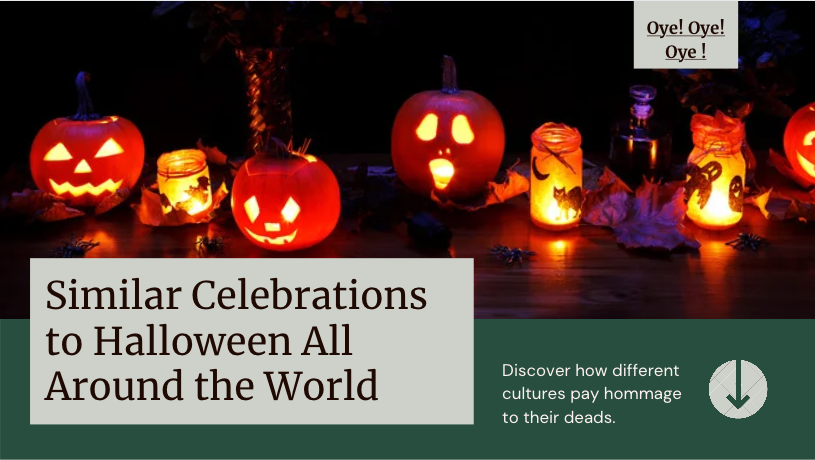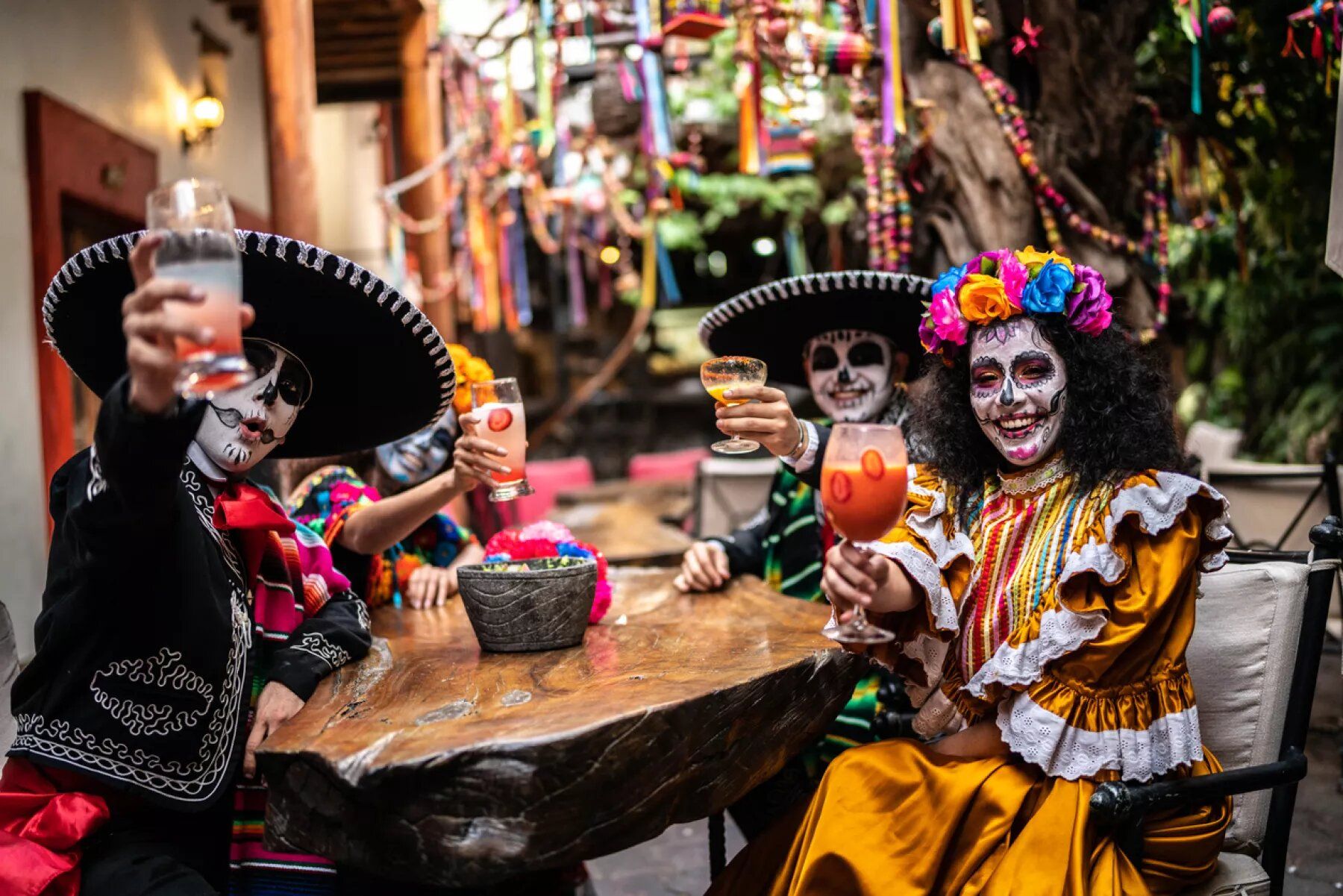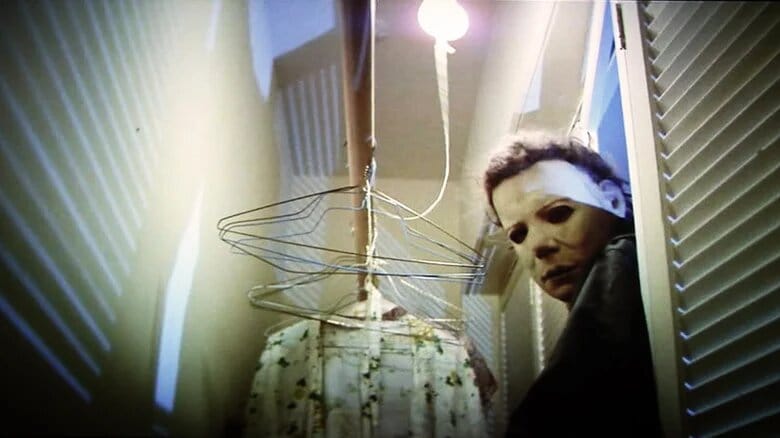
Halloween has become a widely celebrated holiday, known for its spooky costumes, trick-or-treating, and eerie decorations. However, similar celebrations to Halloween can be found in various cultures around the world. These festivities often revolve around themes such as honoring the dead, embracing the supernatural, and exploring the realms of the esoteric. Let's dive into some of these intriguing and diverse celebrations!
Similar Celebrations to Halloween in Asia/
Obon Festival (Japan)
Obon, also known as the "Festival of Souls," is a Japanese Buddhist celebration held in mid-August. During Obon, it is believed that the spirits of deceased ancestors return to their homes to visit their living relatives. Families clean gravesites, light lanterns, and hang "shoryobana" (spirit altars) with food offerings to welcome the spirits.
Bon Odori, a traditional dance, is performed at various festivities and community gatherings to honor and remember the departed.
Hungry Ghost Festival (China)
The Hungry Ghost Festival, also known as Yu Lan Jie, is a traditional Chinese holiday celebrated in the seventh month of the lunar calendar. It is believed that during this month, the gates of hell open, and the spirits of the deceased are released to wander the earth. Families make offerings, including food, incense, and paper money, to appease and honor their ancestors.
Theatrical performances and Chinese opera are often held to entertain both the living and the deceased.
Pchum Ben (Cambodia)
- Buddhist Ancestors' Day
Pchum Ben, also referred to as Ancestors' Day, is a significant religious festival celebrated in Cambodia. This festival lasts for 15 days during the Khmer month of Pheaktra (usually in September or October). Cambodians believe that the gates of hell are opened, allowing spirits of dead ancestors to visit the living.
Families offer food, gifts, and prayers at pagodas to bring merit and provide relief to their deceased relatives.
Pitru Paksha (India)
- Hindu Ritual
Pitru Paksha, also known as Shraadh, is a 16-day Hindu ritual observed in India. During this period, it is believed that the souls of deceased ancestors visit their descendants on Earth. Family members offer food, water, and other symbolic items to appease and honor their ancestors' spirits.
Rituals are performed, including reciting prayers, sacred texts, and performing charitable acts to uplift the departed souls.
Chuseok (South Korea)
- Harvest & Ancestor Remembrance
Chuseok is a major harvest festival celebrated in South Korea during the autumn equinox. While predominantly a festival of gratitude for a bountiful harvest, it also involves paying respects to ancestors. Families visit ancestral graves, perform rituals, and offer food as a sign of gratitude and remembrance.
Folk games and activities such as wrestling, swing rides, and mask dances are also part of the festivities.
Undas (Philippines)
All Saints' Day and All Souls' Day observance
- Cleaning and repairing of graves before the holiday
- Lighting candles and offering prayers to the departed
- Families coming together for meals at the cemetery
- Sharing stories and memories of loved ones
Similar Celebrations to Halloween in Africa/
Awuru Odo Festival (Nigeria)
The Awuru Odo Festival celebrated by the Idoma people in Nigeria is another example of a festival paying homage to the dead. This event, which takes place annually, involves dancing, singing, and masquerades
- Participants wear elaborate masks and costumes resembling spirits or supernatural beings
- Just like in Halloween celebrations, the notion of ghosts and spirits taking on physical forms is present.
Exploring the Esoteric and Spirits
Voodoo Festival (Benin, Togo, Ghana)
The Voodoo Festival, also known as "Fete Ghede" or "Festival of the Dead," is observed in countries such as Benin, Togo, and parts of Ghana. It provides a glimpse into the African esoteric practices and beliefs surrounding spirits and the afterlife.
- During the festival, participants dressed in elaborate costumes and makeup dance to traditional music, invoking the spirits
- Similar to Halloween's association with the supernatural, voodoo festivals celebrate the connection between the living and the spiritual realm.
Hogbetsotso (Ghana)
- In Ghana, the Anlo-Ewe people celebrate "Hogbetsotso," where they honor their ancestors through music, masquerade performances, and storytelling
- The masquerades typically represent the spirits of the deceased, similar to Halloween costumes symbolizing spirits or ghosts
- Offering food and drinks are also common practices during these events.
Masai Ghost Night (Kenya & Tanzania)
(There are no videos of this secret ceremony)
Among the Masai people of Kenya and Tanzania, there is a tradition known as "Ghost Night" or "Engiteni." This sacred ceremony, held at night, involves the initiation of young warriors and communication with ancestral spirits
- Participants wear intricately designed masks and costumes to represent the spirits of their ancestors
- The belief in the presence and interaction with spirits aligns with Halloween's theme of connecting with the spiritual realm.
Religious Traditions and the Supernatural
Egungun Festival (Nigeria)
The Egungun Festival, observed by the Yoruba people of Nigeria, is a celebration dedicated to the worship of ancestral spirits. This vibrant and theatrical festival showcases colorful costumes and masks representing different spirits.
- Participants dress as ancestors to honor and pay tribute to them
- The festival combines elements of spirituality, the supernatural, and cultural heritage, echoing Halloween's focus on the spiritual and the otherworldly.
Kavadi Festival (South Africa)
The Kavadi Festival, celebrated primarily by the Tamil community in South Africa, demonstrates the connection between mortals and the divine. This festival is dedicated to the Hindu deity Murugan and involves devotees carrying ornate kavadis (frameworks adorned with flowers and peacock feathers) during a procession.
- The kavadi-bearers often enter trance-like states, allowing them to connect with the divine and become vessels for spiritual encounters
- This spiritual aspect shares similarities with Halloween's fascination with the boundary between the physical and spiritual realms.
Similar Celebrations to Halloween in Europa/
Samhain (Ireland)
- Samhain, pronounced as "Sow-in," is an ancient Celtic festival that marks the end of summer and the beginning of winter
- This festival is considered to be the precursor to modern-day Halloween
- During Samhain, it was believed that the veil between the living and the dead was thin, allowing spirits and fairies to roam freely
- People lit bonfires, wore costumes to ward off evil spirits, and left offerings of food and drinks for wandering souls.
Samhainn (Scotland)
- Reflecting the Celtic roots of its traditions, Scotland celebrates Samhainn, a festival that shares similarities with Halloween
- Samhainn marks the end of the harvest season and the beginning of the darker winter months
- People carve turnips into lanterns, similar to Jack-o'-lanterns, to ward off evil spirits
- Bonfires are lit, and traditional storytelling and music fill the air to honor the ancient Scottish customs tied to the supernatural.
Dia de los Muertos (Spain) :
- In Spain, Dia de los Muertos (Day of the Dead) is observed on November 1st and 2nd
- This celebration honors deceased loved ones and allows families to remember them in a joyful way
- Spanish people create altars, called ofrendas, adorned with marigolds, photographs, and treats, to welcome spirits back to the living world
- Skull-shaped candies, known as sugar skulls, are also commonly seen during this holiday.
Walpurgis Night - Pagan Festival in Germany:
- Walpurgis Night, also known as Hexennacht (Witches' Night), is celebrated in Germany on April 30th
- This pagan festival marks the transition from winter to spring and is rooted in pre-Christian beliefs
- People light bonfires, dance, and dress up in costumes to ward off evil spirits
- The event revolves around the mythical figure of Saint Walpurga and brings together elements of folklore and witchcraft.
Guy Fawkes Night - United Kingdom:
- On November 5th, the UK celebrates Guy Fawkes Night, also known as Bonfire Night
- This commemoration dates back to 1605 when a plot to blow up the Houses of Parliament was foiled
- Britons gather around bonfires, set off fireworks, and burn an effigy of Guy Fawkes, the plot's ringleader
- While Guy Fawkes Night is not directly related to the themes of Halloween, it shares a connection through the revelry and spooky ambiance.
La Toussaint - France:
- La Toussaint, also known as All Saints' Day, is observed in France on November 1st
- Similar to other Catholic countries, the French take this day to remember their deceased loved ones
- Families often visit cemeteries, clean the graves, and leave chrysanthemums as a symbol of remembrance
- It is a time for reflection and honoring the memories of those who have passed away.
Similar Celebrations to Halloween in South America/
Dia de los Muertos (Mexico)
One of the most famous celebrations in South America that shares many similarities with Halloween is the Dia de los Muertos, celebrated in Mexico. This multi-day festival, which originates from ancient Aztec rituals, revolves around honoring and remembering deceased loved ones. It is believed that during this time, the souls of the departed return to visit their families.
- The main ritual involves setting up altars called "ofrendas" in people's homes or cemeteries. These altars are decorated with marigolds, candles, photographs, and the favorite foods and beverages of the deceased
- Families often spend the night at the graves of their loved ones, lighting candles and offering prayers
- Some individuals wear traditional costumes and makeup resembling skeletons, as a way to honor and mock death
Todos los Santos (Ecuador)
In Ecuador, the celebration of Todos los Santos on November 1st shares similarities with Halloween. This day is dedicated to honoring the saints and departed souls.
- Cemeteries are adorned with colorful flowers, candles, and food offerings placed on graves
- Families come together for picnics in the cemetery, sharing stories and memories of their loved ones
- Children and adults alike dress up in costumes, representing both saints and demons
Festa Junina (Brazil)
Although not directly related to Halloween, Festa Junina is a traditional Brazilian festival that commemorates multiple religious events, including the European Midsummer celebrations, Catholic saints, and rural harvest traditions. It is celebrated throughout June and shares some resemblances to Halloween.
- One popular activity during Festa Junina is the "Quadrilha," a traditional dance performed in country-style costumes
- Masks and makeup resembling ghosts, witches, and devils are commonly used during the festival
- Bonfires are lit as a way to ward off evil spirits and bring good fortune
Fiesta de la Candelaria (Peru)
In Peru, the Fiesta de la Candelaria is a religious celebration that occurs in early February and shares elements with Halloween. It combines both Catholic and indigenous traditions.
- The festival centers around the veneration of the Virgin Mary and the purification rituals of the Incan religion
- Participants dress in intricate costumes and masks, representing various spirits and deities
- Processions, music, and dance fill the streets as people pay their respects to the spirits and seek protection from evil
Similar Celebrations to Halloween in Australia, New Zealand, and South Pacific Islands/
Halloween in Australia

Dia de Muertos in Australia
While Halloween is not traditionally an Australian holiday, it has gained popularity in recent years. Australians have embraced this spooky celebration, particularly in urban areas where communities come together to partake in the festivities. However, Australia also has its own traditional festivals that share similarities with Halloween.
Day of the Dead
Day of the Dead, or Dia de los Muertos, is a Mexican holiday that has found a home in Australia due to its multicultural society. Celebrated on November 2nd, it honors deceased friends and family members. Similar to Halloween, it is believed that the spirits of the dead return to earth during this time. Altars, or "ofrendas," are created with offerings such as photos, favorite foods, and marigold flowers to guide the spirits back to their loved ones. Parades, parties, and skull face paintings are also common during this vibrant celebration.
Halloween in New Zealand
In New Zealand, Halloween has gained traction over the past few decades, and it is now celebrated nationwide. Additionally, there are indigenous celebrations that intertwine with the modern Halloween festivities.
Matariki
Matariki is the Māori New Year celebration and takes place in late May or early June. It is a time of remembrance and honoring the deceased ancestors. Some similarities can be drawn between Matariki and Halloween as both celebrations involve remembering and paying tribute to the dead. During Matariki, a feast is held to celebrate the deceased, similar to the Halloween tradition of sharing food and treats. The Māori also have strong beliefs in spiritual entities including ghosts, who are said to make their presence known during this time.
Halloween in South Pacific Islands
Various countries in the South Pacific have unique cultural celebrations that coincide with the themes of Halloween. These festivities manifest differently across the islands, but the spiritual and supernatural elements remain prevalent.
Nifoloa - Tonga
(We did not find a Nifoloa video so we replace it by a Miss Heilala Brittne Fuimaono dance performance to celebrate life.)
In the island nation of Tonga, an annual event called Nifoloa occurs around the end of October and early November. Nifoloa, meaning "deadly spirit," is a day to remember and honor the spirits of the dead. Similar to Halloween, people dress up in costumes, often resembling deceased loved ones or spirits, to pay homage. The festivities include traditional dances, storytelling, and offerings to call upon the spirits.
Te Waru - Cook Islands
In the Cook Islands, the Te Waru festival held in October has elements that resonate with the ghostly themes of Halloween. This event takes place on Aitutaki Island and signifies the commencement of a ghost month. It is believed that during this time, the spirits of the dead roam freely, and villagers take extra precautions to appease them. Offerings and rituals are performed to ensure the spirits remain content and do not bring bad luck upon the island.
While Halloween may have originated from specific cultural traditions, similar celebrations can be found worldwide, reflecting the universal human fascination with death, the spiritual realm, and the supernatural. From paying homage to ancestors in Mexico's Day of the Dead to Scotland's Samhainn customs of warding off evil spirits, these festivals offer a glimpse into the diverse ways in which different cultures approach the concept of ghosts, dead people, and the esoteric. Embracing these celebrations not only deepens our appreciation for cultural diversity but also highlights the intrinsic human connection across borders and beliefs.




